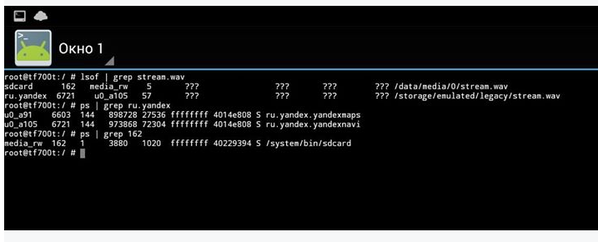
Today I’ve got a warning that there is shortage of space on SD card. Was surprised, started to check. It turned out there is a file in the root, called “stream.wav”, and information is actively being written to it. I’ve listened the content - every event, talks, recording from the microphone for last 2 days. Checked my tablet - the same shit. As I am using CyanogenMod on my tablet, I have found out the reason pretty soon(see screenshot). Spying app is Yandex.Navigator. Now I’ll check logs of my home router, happily I have FreeBSD there, and I log everything, will check where my information went. Block this app or better uninstall it for good!
Yandex commented that it’s a bug.
Yes I believe it’s a bug indeed. We weren’t supposed to know that it spies, and it wasn’t supposed to eat such amount of space probably to remain unnoticed. Yandex will fix the bug and it’ll be harder to notice that it’s apps are spying after people. (:
#android #yandex #navigator #screenshot #surveillance #spyware #spy #software #freedom #cyanogenmod #console #research
I believe this video is via @{Chris ; teslas_moustache@diasp.org} http://www.youtube.com/watch?v=CP8CNp-vksc
#rms #stallman #freedom #ethics #ubuntu #gnu #linux #free-software #privacy #spyware
#rms on #ubuntu #amazon https://www.fsf.org/blogs/rms/ubuntu-spyware-what-to-do #spyware #surveillance
We who present free software as a defense against malware do not say it is a perfect defense. No perfect defense is known. We don't say the community will deter malware without fail. Thus, strictly speaking, the Ubuntu spyware example doesn't mean we have to eat our words.
But there's more at stake here than whether some of us have to eat some words. What's at stake is whether our community can effectively use the argument based on proprietary spyware. If we can only say, "free software won't spy on you, unless it's Ubuntu," that's much less powerful than saying, "free software won't spy on you."